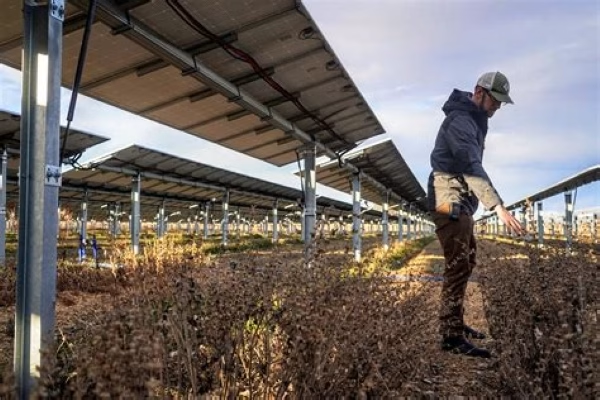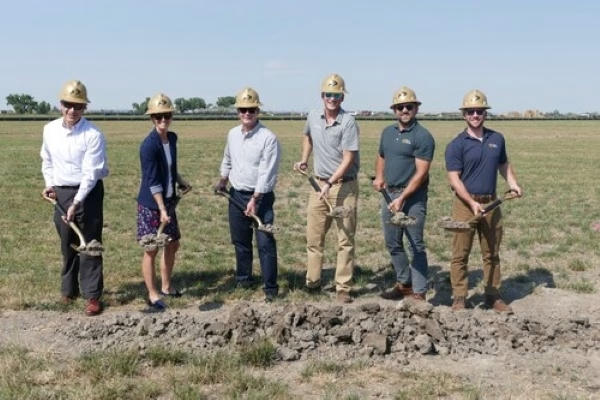Pivot Energy and the University of Colorado Boulder (CU Boulder) last month launched construction on a 5 MW solar array designed not just to decarbonize the campus’ energy supply, but also measure up to sustainable land use. The leading renewable energy provider will develop, own, and operate the solar array project which expects completion in early 2026.
The groundbreaking milestone also marks the continuation of a partnership first announced in July 2024, that sought to take advantage of Colorado’s net metering program.
While this project advances, in Ohio the nation’s largest agrivoltaic farm has yet to begin construction, even though it has already received approval from the Ohio Power Siting Board (OPSB).
CU Boulder — Pivot Energy Solar Array Project Factsheet
Location: Weld County, Colorado
Developer/Owner/Operator: Pivot Energy
Capacity: 5 MWdc
Annual Generation: 9.5 million kWh
Land Use: Solar production + animal grazing
Agreement: 20-year virtual net metering
Decarbonization Goals: 50% Scope 2 GHG reduction by 2030; Carbon Neutrality by 2050
Agrivoltaic Component: 100 sheep grazing under PV panels (Starting Spring)
Financial Impact: Cost-neutral to CU Boulder; local economic benefit from grazing
Colorado Senate Bill 21-261
As settled under a 20-year metering agreement enabled by Colorado Senate Bill 21-261, CU Boulder will receive all the project’s renewable energy credits (RECs) and a subscription credit on its electricity bills. This will make the initiative cost-neutral while helping the university meet its Scope 2 GHG reduction target of 50% by 2030 and advance toward carbon neutrality by 2050.

Dual-Use Innovation Meets Sustainability
Firstly, the 8,000-panel installation spanning about four football fields will generate approximately 9.5 million kWh annually. This is enough to power 850 homes, or offset emissions equivalent to that of 1,580 passenger vehicles.
Secondly, this project integrates agrivoltaics. Starting this spring, a flock of around 100 sheep will graze beneath the panels, naturally managing the vegetation and reducing mowing costs while creating supplementary income for a local rancher.
Why Pivot-CU Boulder Solar Project Stands Out
This project distinguishes itself by bridging the gap between sustainability goals and execution of practical solutions. Additionally, CU Boulder is not only reducing emissions but also embedding renewable energy into its educational mission as it will offer its students real-world learning experiences in clean energy technology and operations.
The initiative also highlights the increasing role of universities as innovation hubs in the fight against climate change. It is a show of how public institutions can lead by example in both policy and practice.
Also read:

Leave a Reply